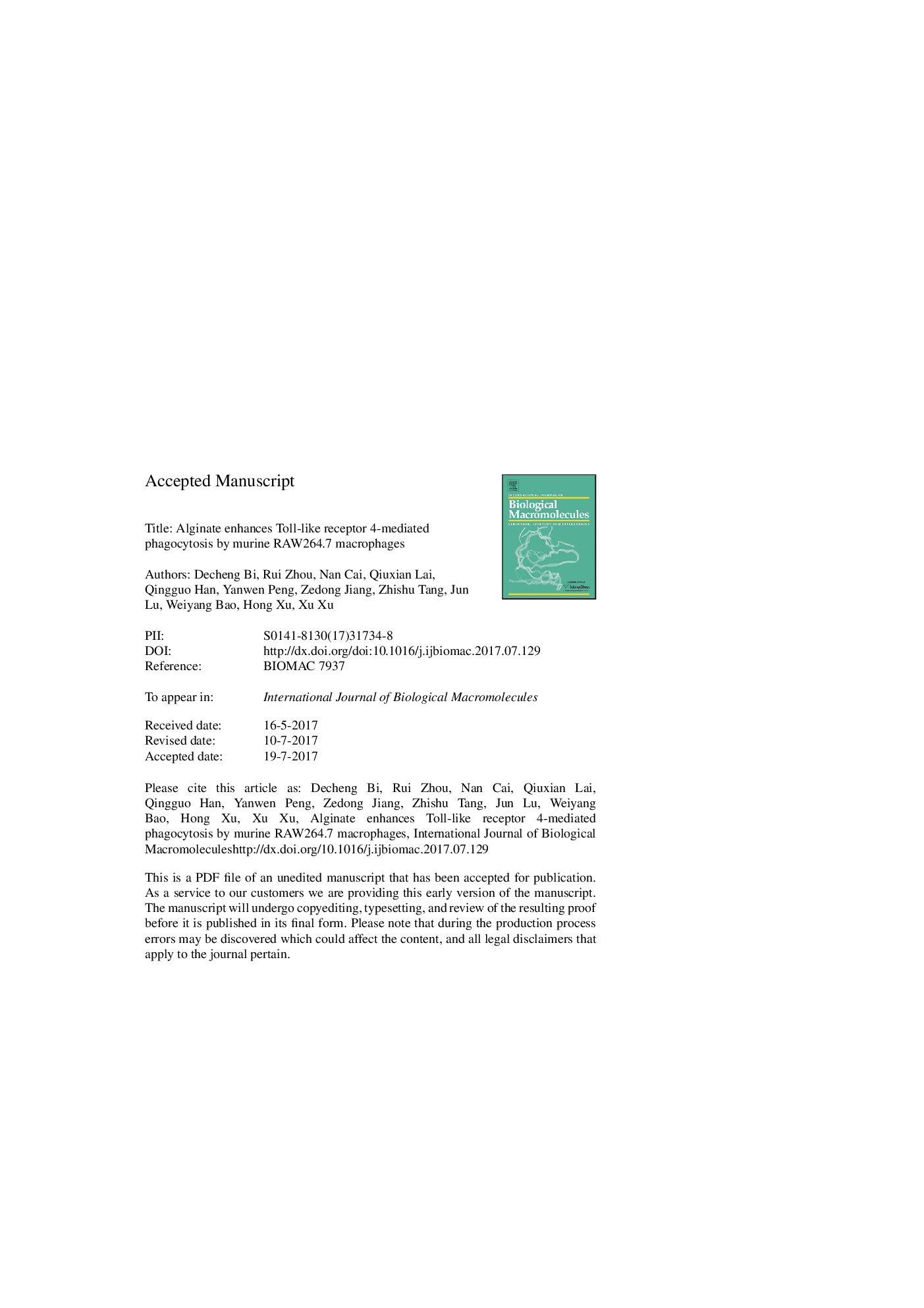| Article ID | Journal | Published Year | Pages | File Type |
|---|---|---|---|---|
| 8329212 | International Journal of Biological Macromolecules | 2017 | 30 Pages |
Abstract
Alginate is a naturally acidic polysaccharide consisting alternately of β-d-mannuronic acid and α-l-guluronic acid with 1, 4-glycosidic linkages and is derived from brown seaweeds. Herein, the effect of alginate on the promotion of macrophage phagocytosis and the corresponding molecular mechanisms were investigated in murine RAW264.7 cells. Alginate could enhance the intracellular phagocytosis of gold nanoparticles (AuNPs), fluorescent microspheres and immunoglobulin G (IgG)-opsonized Staphylococcus aureus (S. aureus). Moreover, alginate increased Toll-like receptor 4 (TLR4) expression and activated the Akt/nuclear factor-κB (NF-κB) and p38 mitogen-activated protein kinase (MAPK) signalling pathways. Alginate-promoted phagocytosis was suppressed by the addition of inhibitors of TLR4, NF-κB and p38 MAPK and by TLR4 gene knockdown, indicating the involvement of these key components. This work is the first to propose that alginate promotes phagocytosis via upregulating TLR4 expression and stimulating the Akt/NF-κB and p38 MAPK signalling pathways, which may contribute to the capacity of alginate to activate macrophages.
Keywords
TAK-242NF-κBJnkFBSFITCPDTCFcγRTLRERKAuNPsc-Jun N-terminal kinaseMAPKAlginateAktToll-like receptorpyrrolidine dithiocarbamatefoetal bovine serumnuclear factor-κBPhagocytosisfluorescein isothiocyanateMacrophageGold nanoparticlesprotein kinase Bmitogen-activated protein kinaseextracellular signal-regulated kinaseFcγ receptorToll-like receptor 4Scavenger receptor
Related Topics
Life Sciences
Biochemistry, Genetics and Molecular Biology
Biochemistry
Authors
Decheng Bi, Rui Zhou, Nan Cai, Qiuxian Lai, Qingguo Han, Yanwen Peng, Zedong Jiang, Zhishu Tang, Jun Lu, Weiyang Bao, Hong Xu, Xu Xu,
